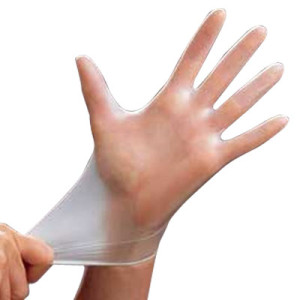California, home of the Burrito Box, a robotic no-hands-Mexican-meal-assembly machine, is also the latest state to adopt a no bare hand contact rule. And the regulatory change requiring a barrier (or utensil) between flesh and food is, according to the L.A. Times, upsetting chefs and bartenders.
The U.S. Centers for Disease Control and Prevention and others have evidence that the U.S. Food and Drug Administration has used to support why keeping assumed-dirty hands off of food is a good idea. The simplified discourse is that food handlers are dirty; handwashing compliance is typically low; and, an easy way to take poor hygiene out of the mix is to legislate that hands can’t touch ready-to-eat foods — except this creates another compliance issue.
“The band-aid of a blanket glove regulation is potentially dangerous,” says Neal Fraser, chef-owner of BLD restaurant and Fritzi Dog. “People get into the tendency to not wash their hands. And environmentally it’s very unfriendly. It’s funny that at the same time L.A. institutes a plastic bag ban, there’s this.”
“For the most part I use gloves throughout my whole preparation process,” said Niki Nakayama, the chef of N/naka who makes sushi as part of her Japanese kaiseki-like meals, “and I have no problem wearing gloves for plating something. I’m on the fence about the cleanliness of gloves all the time.”
But most important for her, “making sushi is incredibly hard to do with gloves on. No. 1, the rice is so sticky, the rice would stick to the gloves undoubtedly. Plus you lose that sense of feel, which is everything in sushi making. You have to know exactly the right pressure to put on ingredients. Wearing a glove would hurt the product.”
It’s clear to me from the evidence that touching food with bare hands increase risk. While many fast-food companies have figured out how to take hands out of the process (as well as food contact surfaces), what’s not clear is which of the paths (glove or no-glove) is easier to skip for all food businesses. Some folks have shown that compliance is low because the tools aren’t there or there isn’t enough time. Others have shown that food handlers may not know consequences.
Having a reg is fine, more important is whether food businesses value the reasons behind it – and actually adapt their processes to comply.
